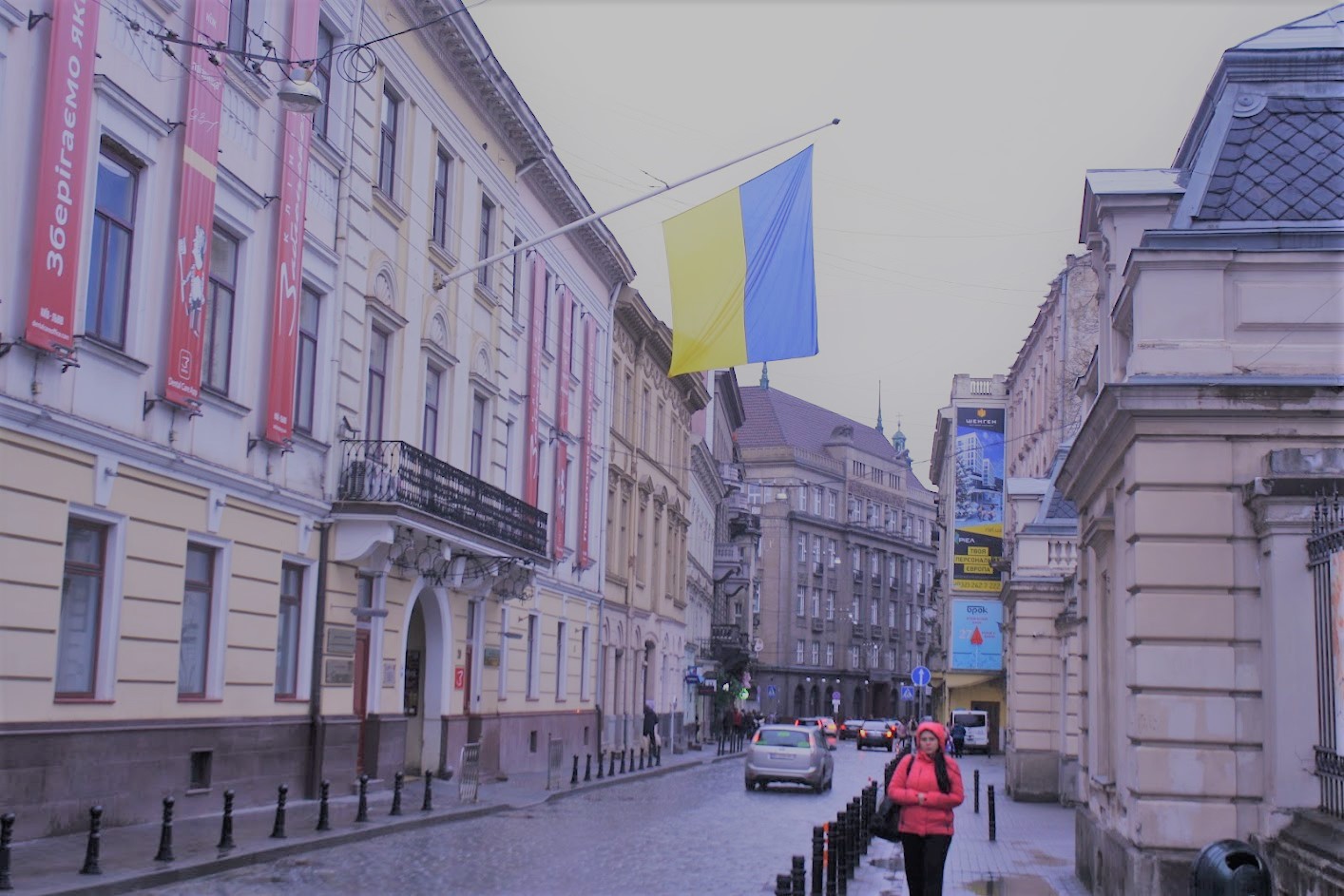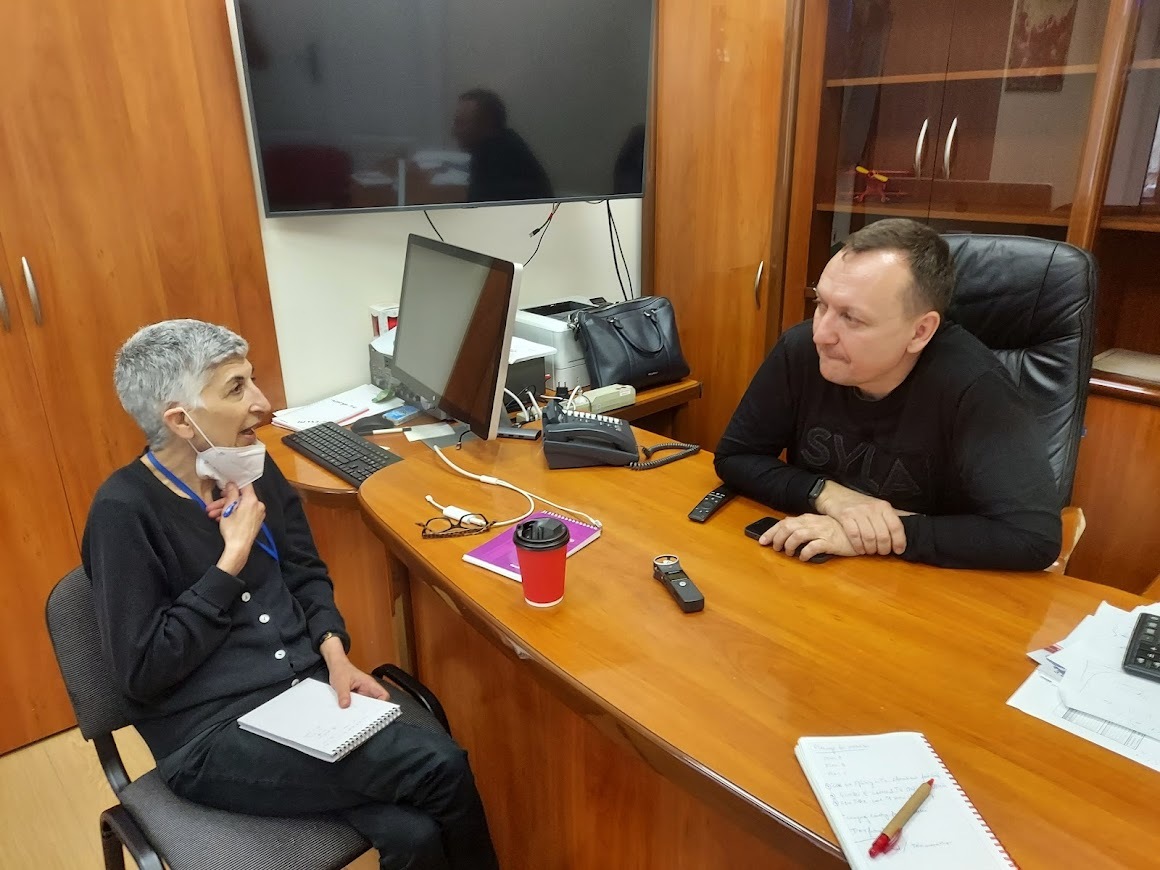Lviv: a city of resistance. Photo-story
I spent three days recently in the city of Lviv, in western Ukraine. There I met with Lvivians mobilised to do everything they can to aid in their country’s victory. This brief story with photos illustrates just how organised this society is in these efforts.
April 24, 2022 -
Adam Reichardt
-
Stories and ideas

Photo: Adam Reichardt
My trip to Lviv was short, only three days, in the middle of April, before the Easter holiday. The city was bustling with residents and internally displaced persons (IDPs), which has tripled the population of the city. People were on the streets, living their normal life; but so were soldiers – members of the territorial defence, the Ukrainian army and the police. This is a country at war, and that can certainly be felt in Lviv.
All hands on deck
My main take away from this trip is that the entire society has put its life on hold to support the war effort. We met activists, journalists, city workers and regular folks who have since February 24th decided to use their skills to support Ukraine’s defence against Russian aggression. It hasn’t been easy; and many face difficulties when having to set aside the pre-war life. But the level of determination of Ukrainians is remarkable.
One example is the Ukraine Media Center; a place in the centre of Lviv for journalists to work, connect, attend briefings and get resources. The office was set up by the Lviv Tourism Bureau which was immediately converted into a media support centre. Later it was moved to the third floor of the brewery at the Beer Theatre on the main square.
Outside the Media Center
We met also with Roman Andreiko, the director of Ukraine’s private TV Channel 24. Roman told us the story of how he had to move his whole studio and staff to Lviv (from Kyiv). Not an easy task, considering how much equipment and staff had to relocate in such a short period of time. The studio in Lviv is a mini-version of what Roman has in Kyiv.
A huge challenge Roman faces is the fact that during the war there is no advertising – which means no revenue. This has been extremely harmful for the television station, as it lost its main source of income. Unfortunately, as a result, the channel has had to lay off dozens of employees and is now running on a reduced budget.
From art to humanitarian response
Not far from the main square is the Lviv Art Palace – one of the most important cultural centers in the city. The center is known for many large artistic exhibitions, including the annual Lviv Publisher’s Forum – the largest book fair and intellectual event held in the country each autumn.
The palace, which has several floors together with exhibition halls, has now been converted into a humanitarian logistics hub. Volunteers work 24/7 collecting, sorting and preparing goods to be shipped to other parts of the country. We met with the Director of the Art Palace Yuriy Viznyak. He explained to us that they have already collected around 1,000 tonnes of different materials. But the needs across Ukraine were high. They had received 27,000 requests for goods from around the country; 6,000 of which were medical requests.
The next day, we found ourselves at another cultural centre. This time it was a small building located 20 minutes outside the centre of the city. Here, the building was converted into a shelter for IDPs, hosting about 50 people from other parts of Ukraine. They also gathered donated materials like blankets, shoes, clothing and infant supplies. There we met Mykola, a former soldier who fought in Donbas from 2014-2019. Mykola organizes care packages to the front and to areas occupied by Russians and works out of the centre.
Aid for the front lines
Later, Mykola took us a warehouse further outside the city. The warehouse is a place where trucks from all over Europe arrive with goods donated for humanitarian purposes. The building is huge, with pallets of all kinds of goods: medicines, infant supplies, mattresses, beds, food and baked goods.
Warehouse
Lastly, I met with Iryna Matviyishyn, a journalist working in Lviv. She had just gotten back from Kyiv that day, and had spent some time in the areas surrounding the capital. I asked Iryna about her experience as well as how she sees western support for Ukraine. The conversation was recorded and released as a podcast on Talk Eastern Europe.
Listen to our conversation via Talk Eastern Europe here:
Leaving Lviv, I had a strange feeling. On the one hand, you can see and feel that this is a country at war – soldiers on the streets and the society mobilised. The curfew was at 10:00 pm and everything closes by 8:00 pm. Yet, on the other, there were so many signs of normality. Restaurants and cafés are full; the main square was bustling with residents. Kids were playing and laughing. It was the Lviv I have known all these years, and at the same time it wasn’t.
The three days that I had spent there were really intense and it felt like I had been there at least a week. I am grateful to have spent this time there. Meet with all the amazing Lvivians who are working for the victory. The most I could do was express solidarity on behalf of Poland, New Eastern Europe and all of our readers and supporters.
I also suggest you read a longer article written by Tamar Jacoby, the American journalist who accompanied me on this trip. You can read her piece here: https://www.city-journal.org/ukrainian-civil-society-mobilizing-to-win
Adam Reichardt is the editor in chief of New Eastern Europe.
Please support New Eastern Europe's crowdfunding campaign. Donate by clicking on the button below.


































